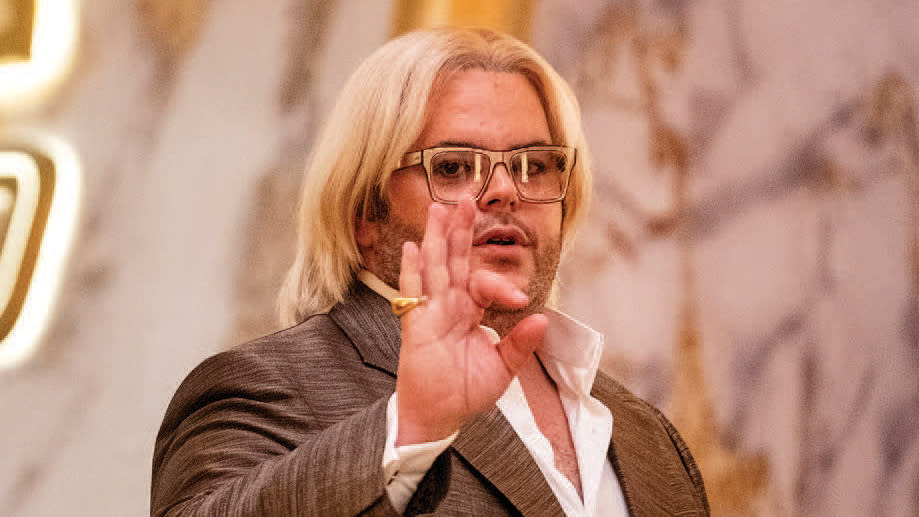How Nicholas Hoult, Josh Gad, Blair Underwood Mined Complicated Male Psyches

Click here to read the full article.
Hollywood has given us plenty of macho males over the years who succeeded in saving the day and forging their names into history books. But recently, there has been a
trend in the opposite direction, with projects asking actors to portray more emasculated men who are trying desperately to live up to the expectations of others, while also often living in their parents’ or partners’ shadows.
Take Peter III of Russia for instance, played by Nicholas Hoult in Hulu’s “The Great.” Peter is the son of one of Russia’s greatest emperors and a mother who refused to love him. The result is someone who is “psychologically scarred” and “deeply insecure,” as Hoult puts it.
More from Variety
Tracy Oliver on Finding the Humor, Heart and Heist of 'First Wives Club'
Why the Entire 'Better Call Saul' Cast Deserves Emmy Recognition (Column)
“Peter is completely a product of his environment,” Hoult says. “He is someone who is basically a child put in this position of power, and he doesn’t really understand it. He just wants to have fun, but he has fully grasped what his position is or how to run the country.”
Peter can be sweet and caring toward his wife, Catherine (Elle Fanning), in one moment, and then violent the next. But while Hoult has played his fair share of odd, potentially violent characters, he says he found Peter to be the most likable because of his honesty.
“He’s very fun to play because of all those terms; he can be very mercurial,” Hoult says. “But as horrible as he might be at times, or as blunt, he’s someone that is a stream of consciousness. What he says is completely what he thinks, you know exactly where you stand with him.”
Much as Hoult used Peter’s relationship with his parents as a way into the character, Josh Gad tapped into similar circumstances to play the sociopathic millionaire Herman Judd in HBO’s “Avenue 5.”
Gad says he studied controversial figures including Billy McFarland and Elizabeth Holmes, as well as more successful entrepreneurs such as Richard Branson and Steve Jobs to find the “obsessive, needy” personality for which he was going.
“In reading about a lot of these guys, there is a constant theme of abandonment, and that really was at the core to my approach to the character,” Gad says. “Judd is so desperate for love; he’s so desperate for affection. His relationship with his assistant Iris is rather unhealthy, and whether you look at Richard Branson or whether you look at Steve Jobs, may he rest in peace, their entire lives were defined by alienation and unhealthy relationships. Jobs was always trying to understand and be at peace with why he was abandoned by his biological parents — he was always trying to prove something to someone — so I really tried to lean into that aspect of Judd as an abandoned child who still somewhat acts like a child.”
Whereas Hoult and Gad’s emasculated figures were built on unhealthy relationships, the marriage that Blair Underwood constructed with Octavia Spencer in Netflix’s “Self Made: Inspired by the Life of Madam C.J. Walker” started out as more equal and fair, Underwood says.
When his character C.J. met Spencer’s Sarah Breedlove, he became infatuated with her because of her drive and ambition, Underwood says. However, over time their relationship began to rot, as she grew to be mega-successful, the first female, African-American self-made millionaire in history, and C.J. was ultimately unable to handle his wife’s success.
“I think it’s hard for some men in this day and age, when their wife is more successful than them,” he says. “And in the early 20th century, it was even more difficult for a man to be in the shadow of his wife. As much as he loved her, it was challenging for C.J. because a male ego can be very fragile. But that’s what you want as an actor. Characters like C.J. are so much more interesting to me because they challenge norms and notions of what is right and what is wrong.”
Best of Variety
Sign up for Variety’s Newsletter. For the latest news, follow us on Facebook, Twitter, and Instagram.

